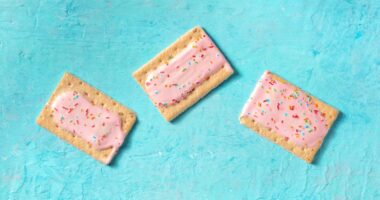If you don’t want people to think you’re 10 years older than you actually are, this article is certainly for you. Sadly, there are many common everyday mistakes that make us look and feel much older than we are—and they can cause more wrinkles, a bigger waistline, and worse mental abilities. For example, did you know that foods like bagels, pretzels, and cereals can speed up the aging of your skin (and cause dreaded breakouts)? Ugh!
Although there isn’t a magical fountain of youth kind of elixir that can reverse the effects of time on your mind and body, you can make some crucial tweaks to your daily routine that’ll put you back on the right track. Gear up to swap out the bad habits for some healthy eating, hydration, and exercise.
Keep reading for the critical things that age you faster. Avoid them at all costs so you can pleasantly surprise people with your age!
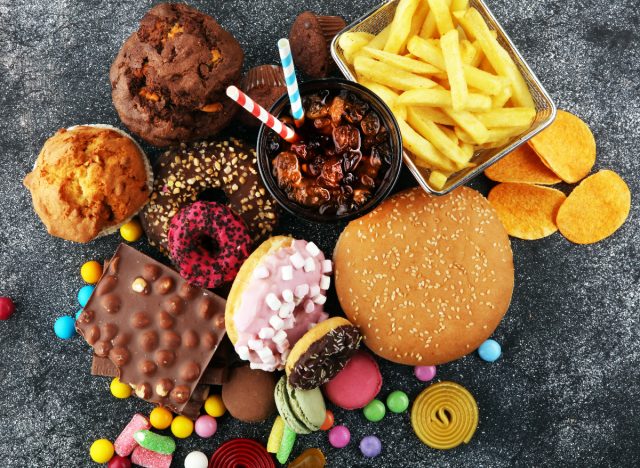

Foods that are highly processed and packed with artificial oils and ingredients cause many issues in your body. These kinds of foods can accelerate the aging of your cells due to higher inflammation and increase the risk of many health problems.
We get it—that greasy cheeseburger and fries may be calling your name. But unfortunately, this kind of meal could put a strain on your digestive system, totally mess up your gut bacteria, and increase your risk of developing diabetes and heart disease (via TIME).
Sure, you can treat yourself occasionally, but enjoy these cheat day foods in moderation. For the majority of your meals, eat healthy foods, which will give you the nutrients to keep your body young and vibrant.
Related: 5 Exercise Habits to Slow Muscle Aging, Trainer Reveals
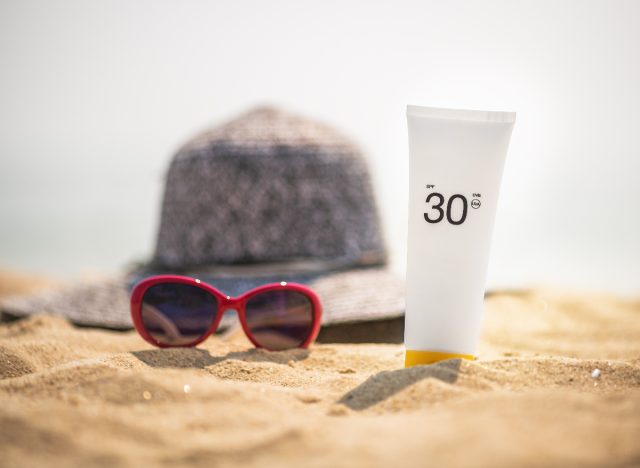

Not to sound like Baz Luhrmann, but wearing sunscreen is one of the easiest things you can do to keep looking young and healthy, whether you’re kicking back at the beach or heading outside for some fitness fun. Why? Because excessive sunlight creates visible signs of aging on your skin and can damage the cells, Cleveland Clinic reports. According to the Centers for Disease Control and Prevention (CDC), exposing yourself to too much UV light could also result in skin cancer.
If you’re going to be outdoors for a decent period of time—no matter the season—then use sunscreen to protect yourself from harsh rays and moisturize your skin. The CDC recommends wearing long pants and long-sleeve shirts when heading outdoors (when you can), in addition to sitting under an umbrella, wearing a hat, and putting on your sunglasses.
READ RELATED: Dan Murphy's: How long wine lasts once opened – and how to make it last longer
Related: The Best Exercises To Live to 100 and Beyond, Trainer Reveals
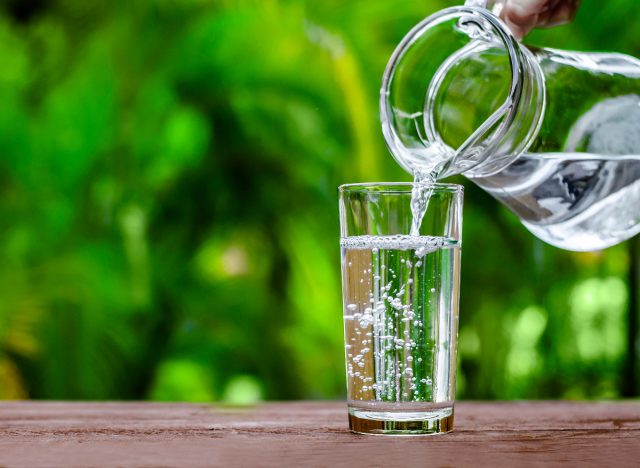

Next up on this list of things that age you faster is not drinking enough water. Although the human body is made up of roughly 60% water, you actually lose water composition as you age (via the National Library of Medicine). Being chronically dehydrated—even just a little—makes you feel stiff, weak, sluggish, and as if you’re 10 years older.
Start each day with a big glass of water, and make sure to drink plenty of fluids throughout the day—especially if you’re exercising, at altitude, or in hotter climates.


We all experience occasional stresses in life, but dealing with chronic stress can lead to mental disorders and accelerated aging (via Biomedicines). If you want to feel your absolute best as you age, strive to reduce stress in your daily life with exercise, journaling, meditation, and more. Work to confront your issues and adopt a positive mindset to overcome the challenges in your life.


Many Americans struggle with sleep. As a matter of fact, according to a study in the Centers for Disease Control and Prevention’s (CDC) Morbidity and Mortality Weekly Report, one in three adults doesn’t get enough regular, solid sleep. Research shows lack of good sleep is associated with more inflammation, a higher risk of diseases, and faster biological aging (via PRB).
We can’t stress this enough: Build good sleep habits! According to the American Academy of Sleep Medicine and the Sleep Research Society (via the CDC), adults who are 18 to 60 years of age should get a minimum of seven hours of sleep every night to stay in good health. Sleep in a dark, quiet, and cool room, and avoid electronics, caffeine, or alcohol too close to bedtime. Try a soothing pre-bed routine to get your body and mind prepared for rest.
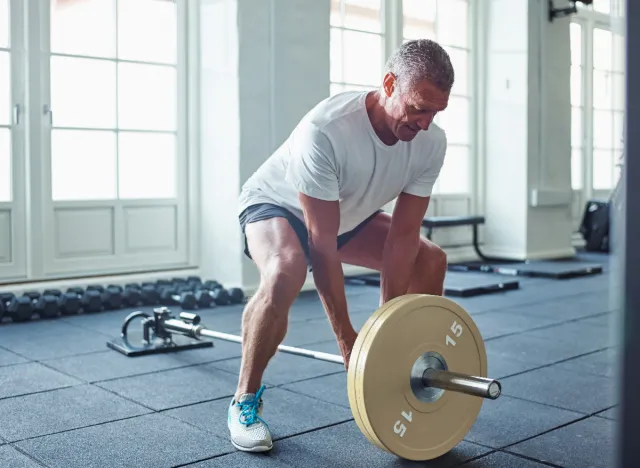

While exercise is vital for staying in good health, pushing it to the extreme has serious drawbacks. Avoid the type of hardcore, joint-pounding activities that require surgeries in your 40s and beyond.
Exercise is a lifestyle, not a battlefield—you don’t get bonus points for destroying your body in the pursuit of fitness. Instead, as you age, switch to lower-impact exercises like swimming, biking, rowing, yoga, and more to get a great workout without the strain on your body.
Anthony J. Yeung
Source:



